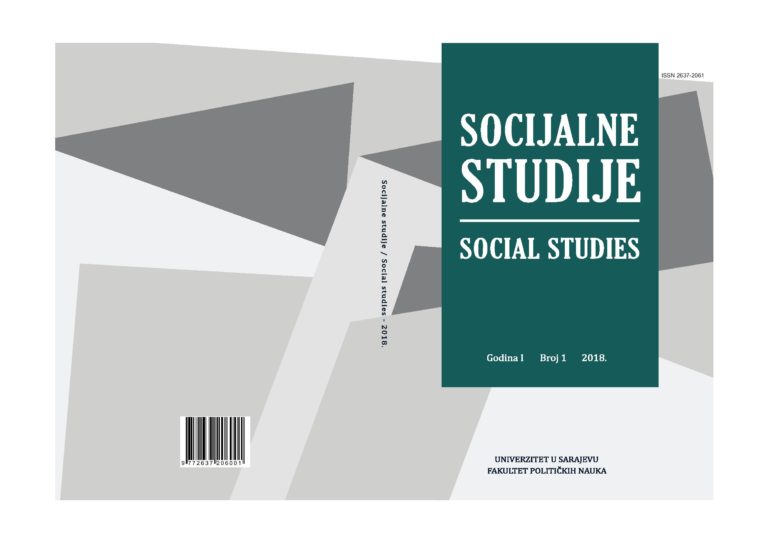PERCEPCIJA SOCIJALNOG RADA U BOSNI I HERCEGOVINI
THE PERCEPTION OF THE SOCIAL WORK IN BOSNIA AND HERZEGOVINA
Author(s): Nedreta Šerić, Anida DudićSubject(s): Welfare systems, Welfare services
Published by: Fakultet političkih nauka - Univerzitet u Sarajevu
Keywords: perception; social work; the crisis; social status; degradation; reductionism;
Summary/Abstract: Social work in Bosnia and Herzegovina appeared as a response to a social crisis and accumulated social problems. Industrialisation, urbanisation and migration required professional intervention, and war is also the main reason for introducing social work as a professional activity. Although it has been 60 years since social work became a profession in Bosnia and Herzegovina and its application began in practice, there are still many limiting factors that negatively affect the social status and status of the profession of social work. Considering the above, it was important to examine the attitudes of social workers and students about social work, about the factors affecting the social position, but also the crisis that necessarily determines the future of social work. The study included 270 participants. Questionnaires were used to survey 115 social workers and 155 students of the first and second program cycle at the Department of Social Work of the Faculty of Political Science, University of Sarajevo. A semi-structured interview was conducted with social workers (N=6). By the means of interviews, we wanted to get a wider insight into the attitudes of experts- social workers about the issues in social work in Bosnia and Herzegovina. The results of the research show that the social work in our society has not yet received the place it deserves. The position of the social work is dissatisfying; it is perceived on the margins of the scientific-professional discourse, a multiannual crossroad and mostly “anchored in social protection”. Direct and indirect factors affecting the perception of the social work were identified, and it was pointed to the need for systematic work on removing the factors of degradation. It was noted that limited opportunities for action make it difficult for social workers to be genuine social workers in practice, loyal to their professional identity and the ethics of social work. An important result of the research suggests, regarding valuation, respect and appreciation for the social work, social workers should be recognised in public, through their personal commitment and the use of the media to inform the public about their work.
Journal: Socijalne studije
- Issue Year: I/2018
- Issue No: 1
- Page Range: 94-114
- Page Count: 21
- Language: Bosnian

